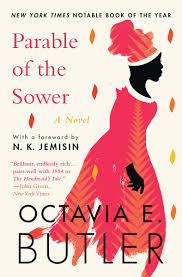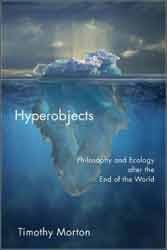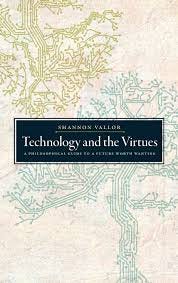5 Titles that Influenced My Book
If you’re buying some books today, buy some good ones.
I believe that one of the greatest things a book can do is lead you to other books. Seeing as today is one of capitalism’s High Holy Days, I thought I’d recommend some books that I love and had influence on my own thinking while writing my first book, Exvangelical & Beyond.
(Yes, this post contains affiliate links; yes, if you haven’t picked up my book yet, please do so! I’m posting this from my phone while traveling for the US holiday.)
Parable of the Sower, by Octavia Butler
This book is arguably Octavia Butler’s most famous work, and there’s good reason why. The novel, set in a collapsed American society affected by climate change, envisions a new form of religion called Earthseed. It draws upon our capacity to “shape God,” and build constructive spiritual practices. So good for so many reasons.
Hyperobjects: Philosophy and Ecology after the End of the World, by Timothy Morton
Timothy Morton’s concept of “Hyperobjects” was instrumental in helping me understand the complexity of what white evangelicalism has become over the last two centuries. (A hyperobject can be used to describe something vast, all-encompassing, and hard to pin down, like climate change, or a religion.) The very concept, whether seen as literal or metaphorical, is powerful—especially with the way it can transform the apocalyptic thinking that so many of us still have rolling around in our heads.
The Christian Imagination: Theology and the Origins of Race, by Willie James Jennings
This book plumbs the history of the concepts of race and racist thought, and how they are tangled up in Christianity. The introduction begins with a powerful personal story—of white evangelists coming to his childhood home, completely ignorant that his family was heavily involved in the Black church nearby and ignorant of the Black church overall—and shows what it took to get to that point.
Technology and the Virtues: A Philosophical Guide to a Future Worth Wanting, by Shannon Vallor
This book is ambitious. It is a comparative study of three different virtues ethics traditions—Aristotelian, Buddhist, and Confucian—and how they can help us adapt in societies undergoing rapid technological changes. Vallor proposes that we must cultivate “technomoral wisdom” that allows us to respond to social change in prudent ways. Vallor also has a new book on AI called The AI Mirror, which is also instructive.
Because Internet: Understanding the New Rules of Language, by Gretchen McCulloch
This book is a wonderful look at how the internet has affected how we use language. It takes internet culture seriously but is not self-serious—the enthusiasm the author has for the topic is apparent and makes reading it a joy.
Thanks for reading—now get to reading these books, and let me know what you’re reading over the weekend in the comments.








Love the title "Because Internet" :)!
What interesting selections. Thank you!